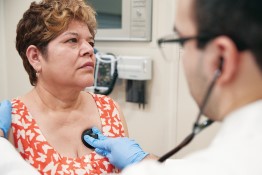As states continue to combat continuously rising health care costs many are finding value by migrating from a traditional fee-for-service model (FFS) to one based on quality and outcomes. This shift focuses on smarter spending, better care and healthier people – a win for both residents and state spending.
At UnitedHealthcare we believe the transition to value-based payment arrangements provides the best path to better health, better care and lower costs – for our Medicaid members and state partners.
Traditional FFS models are volume-driven. Payments for services are allocated regardless of outcomes. As a result, there is no incentive to improve quality of care, seek better outcomes or decrease recurring health care needs and spending.
Value-based purchasing (VBP) models incentivize quality and value. They promote proactive outreach, coordinated care and evidence-based practices while holding providers accountable for quality and outcomes.
At UnitedHealthcare Community & State, we are using VBP to show a way from FFS while partnering with providers to deliver health care services. A healthy transition requires using resources more efficiently, aligning cost and quality, and driving consistency of incentives across payers and providers.
The benefits of value-based purchasing
- Increased emphasis on whole person care. This approach recognizes and responds to social, environmental and medical factors to engage individuals proactively rather than reacting when a health event has occurred.
- Heightened incentive to coordinate care. This approach helps ensure that all care is based on evidence-based practices that result in the best possible outcomes at lower costs.
- Emphasis on collaboration and transparency. Payers and providers share a common goal of better outcomes as opposed to a system where payment is solely based on services rendered.
- Reduction in healthcare waste. An increased focus on tracking and using data to provide a fuller picture of an individual’s health risks and care result in more efficient use of resources and achievement of better future health outcomes.
- New focus on prevention, wellness and healthcare management. This approach uses research and evidence- based practices to proactively address factors that contribute to an individual’s health and influence healthy outcomes rather than simply treating an illness or disease.
- Potential to improve patient health and reduce healthcare costs. These outcomes positively impact both the healthcare system’s bottom line and the lives of individuals.
At UnitedHealthcare we believe the transition to value-based payment arrangements provides the best path to better health, better care and lower costs – for our Medicaid members and state partners. Today, 3.5 million of our Medicaid members are seeking care from health professionals who participate in value-based arrangements. Our current portfolio of VBP includes 300 Accountable Care Organizations (ACOs), over 4,000 providers in our quality-focused VBP programs, and multiple states participating in our Hospital Performance Based Contract program.
We also serve a variety of membership types across the continuum of Medicaid-eligible individuals. These programs encourage our members to lead the healthiest lives possible by giving both them and their doctors incentives that reward coordinated care and by ensuring the care received is based on evidence-based practices that result in the best possible outcomes at lower costs.
Source: Health Care Payment Learning & Action Network (LAN).











Share: